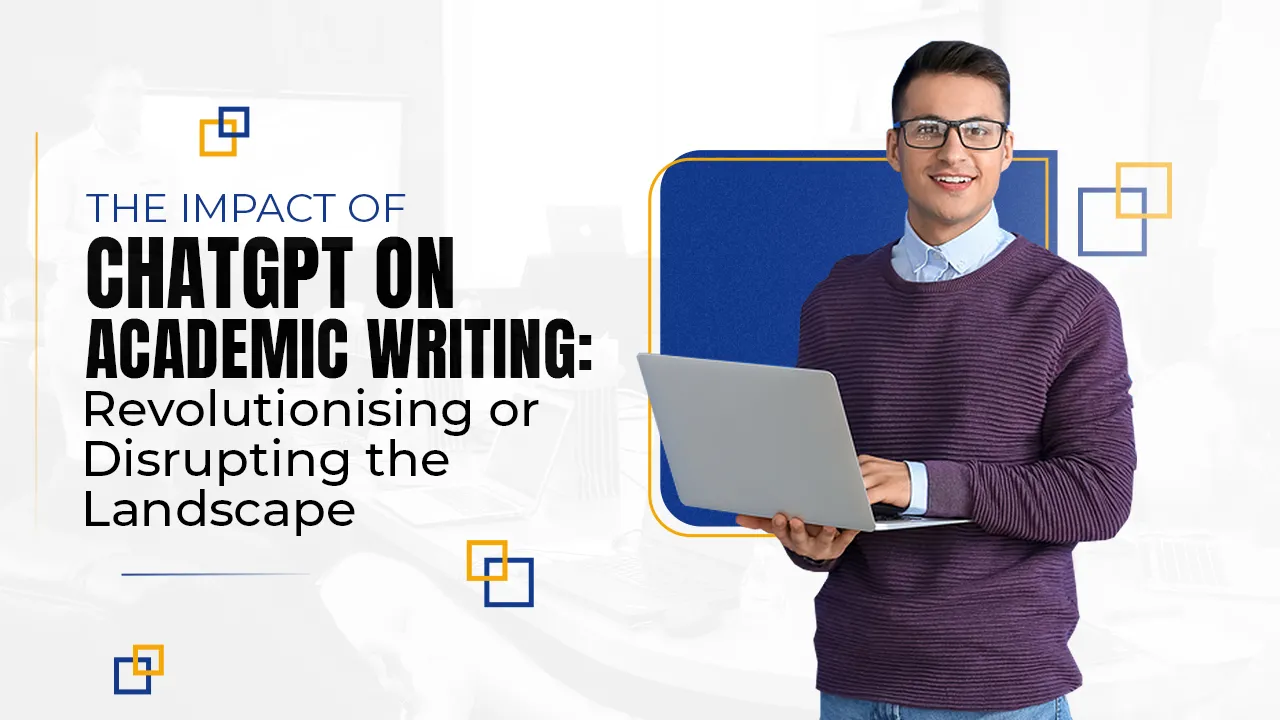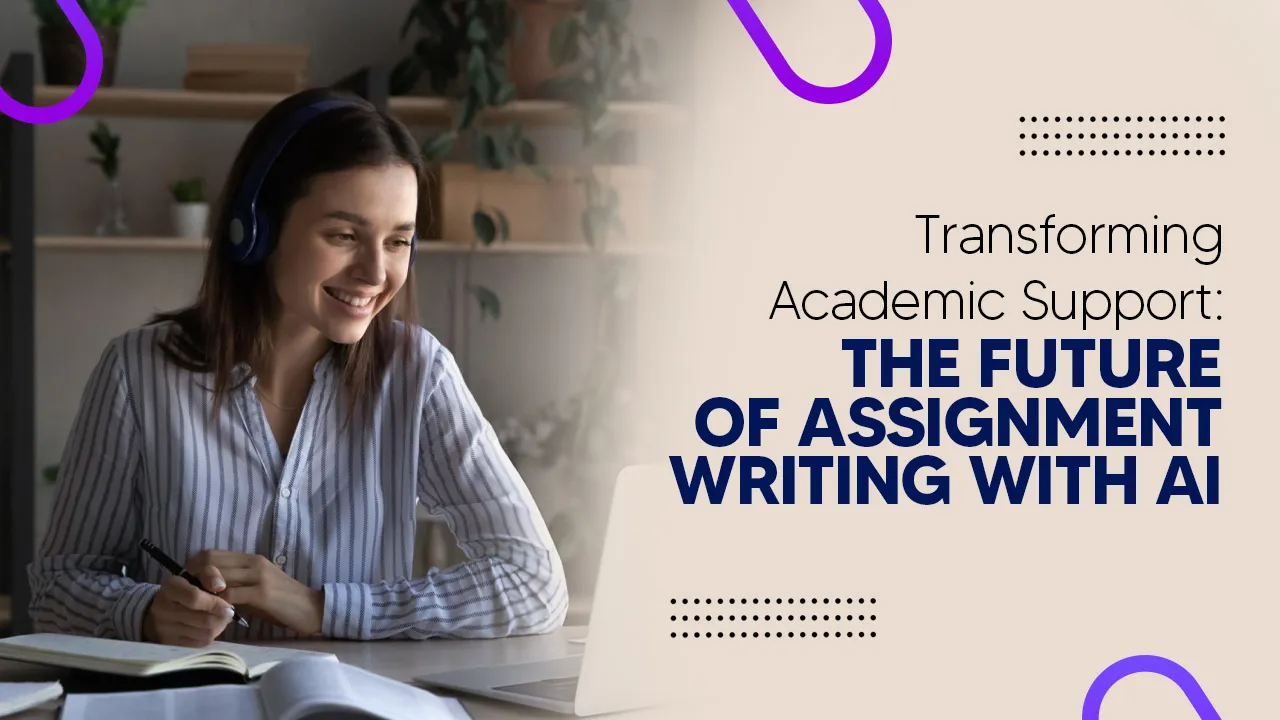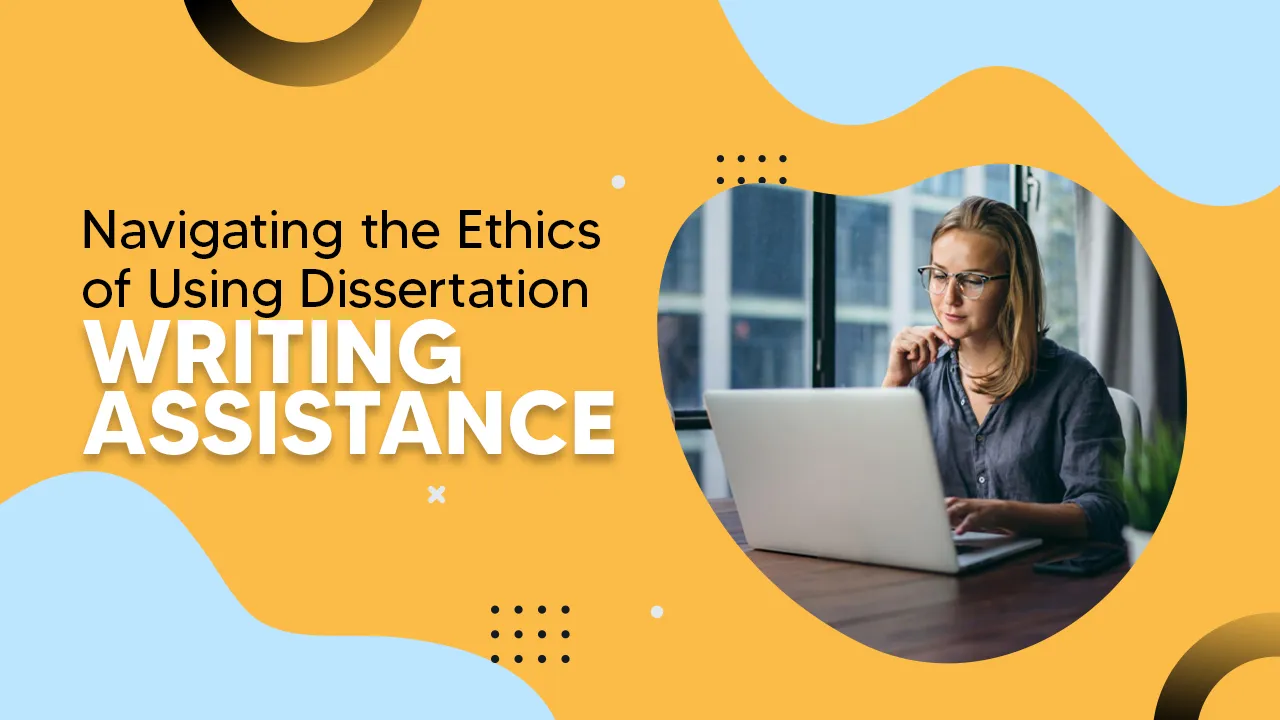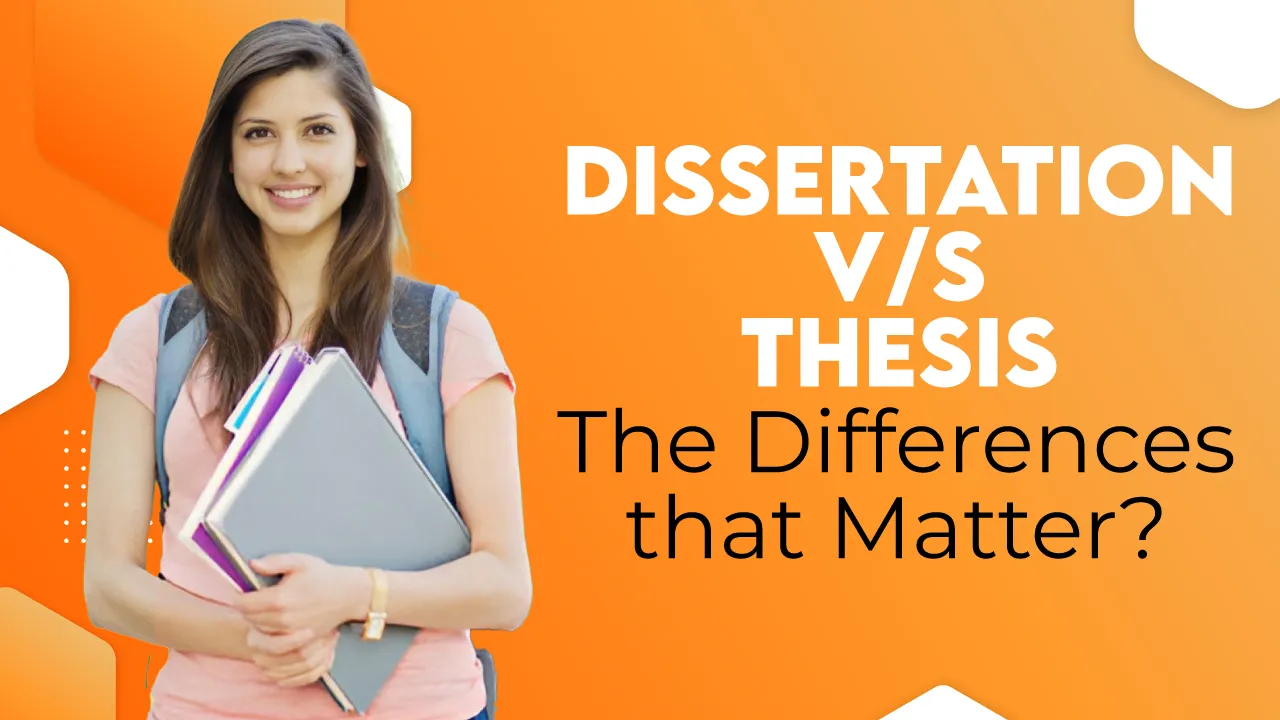The Impact of ChatGPT on Academic Writing: Boon or Bane?

Contents
Introduction
In recent years, academia has grown interested in using artificial intelligence and language models, including ChatGPT. This technology holds immense potential to revolutionise the methods of teaching and learning. However, it is crucial to consider both the benefits and drawbacks associated with its implementation.
Serving as an AI language model, this tool exhibits a wide range of capabilities, such as language translation, songwriting, AI dissertation writing, and even computer code generation. Consequently, it has swiftly gained popularity as a versatile tool for numerous applications, ranging from chatbots to content creation.
Nevertheless, despite its remarkable advancements, it does possess certain limitations. It is not immune from flaws and difficulties that may affect its overall effectiveness and accuracy, like any AI technology. Consequently, it becomes pertinent to examine the implications of employing ChatGPT for academic writing: does it represent a game-changing asset or a potentially disruptive tool?
ChatGPT for Academic Writing: A Game Changer or Disruptive Tool
Rapid advances in artificial intelligence have opened up new possibilities for various fields, including academic writing. ChatGPT, powered by the GPT-3.5 architecture, has attracted significant attention for its ability to generate human-like text and interact with users conversationally. But this tool is still considered a disruptive tool in academic writing.
Advantages of ChatGPT in Academic Writing
1. Increased Efficiency and Productivity
ChatGPT can assist academic writers by generating drafts, providing suggestions for sentence structures, and offering alternative phrasing. This can significantly improve the efficiency and productivity of the writing process, allowing researchers to focus more on the content and critical thinking aspects. But the research efficiency of our researchers will decrease.
2. Access to Diverse Knowledge and Sources
ChatGPT can access a large amount of information from various sources, which enables its authors to provide comprehensive and updated knowledge. This feature can be particularly useful for researchers who need a broad understanding of their field or need to seek a multidisciplinary approach. But you will stop trying alone when AI tools serve everything on a platter.
3. Language Support and Proofreading
ChatGPT's language model can identify grammar and spelling errors and suggest improving writing style.
Challenges and Limitations
1. Lack of Domain Expertise
Although AI tools have an impressive language creation capability, it may lack domain-specific expertise. Academic writing often requires specialised knowledge and terminology, which ChatGPT doesn't always understand accurately. Researchers should exercise caution and verify information generated by this with official sources. It always answers you in the same words and flows when you search.
2. Ethical Considerations
The employment of ChatGPT and other AI models presents ethical questions. Detection of plagiarism, proper referencing, and adherence to academic integrity are important aspects that must be addressed carefully when using this tool. Researchers must ensure that their work meets the required standards of authenticity and originality.
3. It Doesn't Make Common Sense
A near-lookalike does not qualify as a human, and a human has the common sense (some do not), which is one of the major limitations of ChatGPT. Its limitations include having common sense, which we humans lack in the background, and sometimes providing inaccurate and inaccurate information!
4. It Cannot Access the Internet
Another limitation of AI writing tools involves access to the Internet. This drawback is one of the biggest drawbacks as AI cannot provide real-time information like the current currency rate to any other. It provides previous years' data as it cannot access the net!
This limitation of ChatGPT can be annoying for many people like AI dissertation writer as it is almost useless to get real-time information using it. This is so that users of the AI may process language rather than use it as a search engine like Google and Bing. This is a limitation of this tool that many people are still not aware of!
5. ChatGPT has Limited Knowledge
Many people are also aware of ChatGPT's knowledge gap, which is one of its limitations. This relates to the earlier discussion concerning internet access as it can only retrieve information from the internet and cannot supply up-to-date information.
There are moments when you notice that AI tools cannot provide you with some answers since those answers are not in its tank of information despite having a sizable reservoir of knowledge (albeit not as much as people do)!
6. ChatGPT Lacks Creativity
The inability to be creative is one of it is drawbacks (which AI admits to having). It can have trouble creating original answers to your inquiries because its creative responses are constrained to the ones it has practised.
7. Can't Provide In-Depth Information
Another limitation is known by many, but yet many people are unaware of this. You might have noticed that when you ask ChatGPT a question that can have a detailed answer, it will usually provide a summary, and sometimes even those summaries can contain wrong answers.
8. ChatGPT Can Provide Biassed Answers
Since this tool was trained on text data, there is a chance that part of the data contains biases and prejudices that could affect the answer and enable the AI to unintentionally give biassed or discriminating replies since it is not human! Given that these responses may cause emotional harm to a person, this is one of the worst restrictions available.
9. Can't Understand the Context
ChatGPT has a drawback in that it has trouble comprehending context. It might be an artificial intelligence (AI) language model; it has trouble comprehending human humour and sarcasm. If you use sarcasm in your question, might not grasp it and provide you with an entirely different response.
10. Can't Express Emotions
The inability of this open-source AI model to express emotions is a clear drawback. The AI will give you answers, but there won't be any feelings behind them because it is a computer and cannot convey emotions the way people can. You will receive one if you ask him to compose a brief poem, but it won't have the poet's feelings or emotions.
11. There are Numerous Typos and Grammatical Problems
The diversity of typos and grammatical problems may have been another drawback that some students may have encountered. The responses provided by the AI model may be technically accurate, but they may not be relevant or in context. This constraint of ChatGPT can be particularly challenging when processing complicated or specialised information when precision and accuracy are essential.
Frequently Ask Questions (FAQ's)
1. How Does ChatGPT Affect Academic Performance?
ChatGPT acts as a tool to enhance their academic performance by offering the best possible assistance with several tasks. It includes aspects like generating ideas, doing research, and many more. However, the impact of it is going to depend on how effectively it is being used by the students.
2. What are the Positive Effects of ChatGPT?
ChatGPT positively impacts the creativity of the students. It provides the best aid in problem-solving and also provides quick access to information. It can generate diverse perspectives regarding a task and assist in enhancing the productivity of the task. All its benefits are very good and have a positive impact on the performance.
3. How Does ChatGPT Affect Writing Skills?
ChatGPT positively influences writing skills as it provides instant feedback to the students related to the areas that need improvement. It also inspires the students to come up with new creativity. It is a tool that is used for learning writing rather than a substitute for developing writing abilities.
4. What is the Problem with the ChatGPT?
The main concern with ChatGPT is the potential for misinformation. It generates content that is based on the input it gets. It is said that the reliance on ChatGPT may hinder critical thinking skills. Therefore, the users need to corroborate information generated through ChatGPT to ensure its accuracy.
5. What are the Pros and Cons of ChatGPT?
ChatGPT offers various advantages. It includes its ability to generate different content, increase productivity, and many more. Whereas drawbacks include the risk of a reduced level of critical thinking and the verification of its outputs that is for accuracy.

Conclusion
The limitations and challenges of ChatGPT pose significant concerns. Ethical considerations, such as plagiarism detection and academic integrity, are critical aspects that researchers must address carefully when utilising this tool.
While ChatGPT can be a helpful aid in academic writing by enhancing efficiency and providing access to diverse knowledge, researchers must approach its usage cautiously. Relying solely on AI without human expertise and critical thinking can lead to potential pitfalls and inaccuracies.
As technology evolves, striking an awareness between AI assistance and human intelligence remains essential in academic writing. Dissertation writing services are more beneficial for students to write their academic assignments. They have subject experts who help students compressively.
Your email address will not be published. Required fields are marked *
Recent Post

09 Sep 2024
Role of AI in the Future of Academic Assistance

16 Sep 2024



Thank you for this informative and engaging exploration of ChatGPT's impact on academic writing. Your article effectively outlines the advantages of using AI technology, such as increased efficiency and access to diverse knowledge, while also highlighting the challenges and limitations involved.
I wanted to express my appreciation for the thorough coverage of the implications of using ChatGPT in academic writing provided in this article. Your examination of the advantages, challenges, and limitations associated with AI technology offers readers a holistic understanding of the topic.
Kudos to the writer for offering such a balanced perspective on the use of ChatGPT in academic writing. Your article effectively weighs the advantages and drawbacks of employing AI technology in research, providing readers with a nuanced understanding of the topic.
Thank you for sharing this insightful exploration of ChatGPT's role in academic writing. Your article effectively highlights the transformative potential of AI technology while also cautioning readers about its limitations.
Your article provides an informative and engaging examination of how ChatGPT influences academic writing. It adeptly lays out the benefits of AI technology, including improved efficiency and expanded access to various knowledge sources. Additionally, it sheds light on the obstacles and constraints that come with integrating AI into academic writing processes.